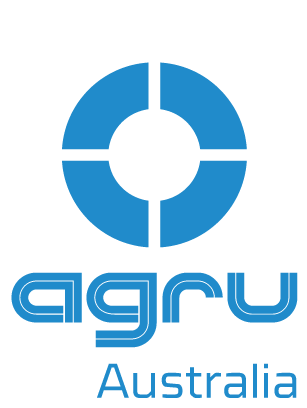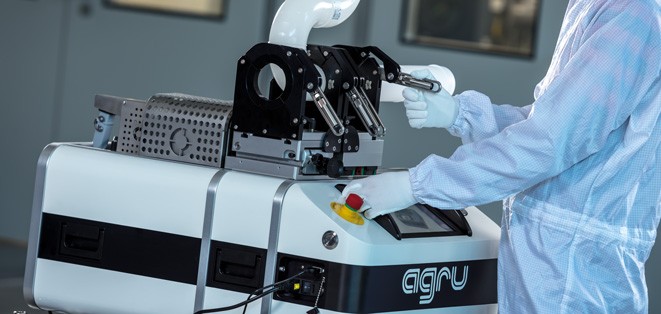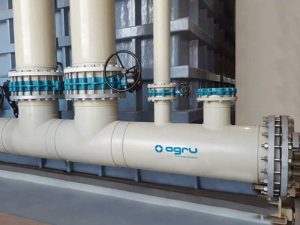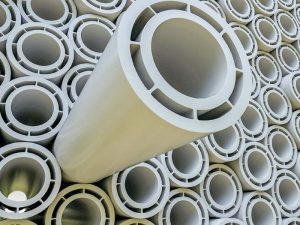Are you thinking of investing in new gear for your workshop or site? If you’re unsure where to begin, looking into welding equipment in Brisbane can be a great place to start. Each type is designed for a specific job, and choosing the right one can help you avoid delays and improve your results. Whether setting up a workspace, upgrading tools, or replacing worn-out equipment, the right choice will make your work smoother, safer, and more efficient.
Understanding Different Types of Welding Equipment
If you’re starting your search, exploring the options in Brisbane can help you understand what’s most suitable for your needs. Every tool is made for a particular purpose, so learning the differences will make your decision easier. Below are some of the most common types used for thermoplastics and where they’re typically applied.
Butt Welding Machine
This type joins plastic pipes by heating and pressing their ends together until they fuse. It creates a seamless connection for high-pressure work like water, gas, or chemical pipelines. It’s widely used in infrastructure projects where a secure, long-lasting bond is essential.
Socket Welding Machine
Perfect for smaller-diameter pipes and fittings, this tool heats both surfaces and joins them together for a tight, reliable seal. It’s most often used in plumbing, irrigation, and compact installations where space is limited. Simple to use and effective, it’s a favourite for light commercial jobs.
Electrofusion Welding Machine
This option uses special fittings with built-in coils that melt and bond plastic components. It delivers clean, accurate joins and is ideal for tight spaces or restricted access areas. It’s a trusted choice for utility and service installations.
Sheet Welding Machine
This is ideal for bonding flat plastic sheets and is commonly used in workshop settings. It provides even, watertight join for applications like tanks, linings, and containment systems and is known for producing clean finishes across large surfaces.
Hand Extrusion Welder
Compact and portable, this tool applies filler material by hand, making it useful for on-site fixes or hard-to-reach places. It’s convenient for repairs, small-scale joins, or working in detailed sections. Many trades rely on its flexibility and ease of use.
Wedge Welding Machine
This tool is best for joining large sheets in outdoor settings like landfills, ponds, or civil sites. It uses pressure and heat to form long, consistent seams efficiently. It’s a must-have for covering significant areas where durability and speed are key.
Matching Equipment to Project Requirements
Not every job calls for the same setup. Choosing the right tool depends on the type of work, the site conditions, and how often you’ll be using it. Getting it right from the start helps avoid costly mistakes and keeps your workflow moving.
Pipelines and Pressure Systems
Strong, consistent joins are essential when dealing with large or high-pressure lines. Some setups are perfect for long straight runs, while others work better in tight or awkward spots. Each serves a purpose, depending on the complexity of your layout.
Sheet Lining and Fabrication
Control and precision matter if you’re working with plastic sheets—for tanks, liners, or barriers. Some tools are better for workshops, while others are built for outdoor use over vast areas. Choosing based on location and scale helps avoid slowdowns.
Small Fittings and Indoor Setups
A compact option is ideal for jobs inside buildings or where pipework is minimal. It is easy to use, especially in narrow spaces. Compact options are common in plumbing and light commercial setups.
Repairs and On-Site Fixes
A handheld tool is often the most straightforward solution if you’re in the field or dealing with more minor adjustments. It allows for detailed work and fast fixes without needing larger gear, making it ideal for mobile trades and short-term tasks.
Material Compatibility
Make sure your tool is suited to the plastic you’re using—whether it’s PE, PP, or another type. Some are designed for specific materials, and mismatching them can lead to weak joins. Getting this right helps prevent rework or damage.
Working Conditions
Brisbane’s warm, humid climate and outdoor job sites can make equipment challenging. It’s worth investing in something built for rough environments that can handle dust, heat, and wear. This helps reduce breakdowns and extend its lifespan.
Making Informed Choices Leads to Better Results
Choosing the right welding equipment in Brisbane isn’t just about picking a name or following trends. It’s about finding something that suits your work, location, and team. A well-informed choice means safer handling, better performance, and fewer setbacks.
A wise investment now can also save you money over time. Durable tools lead to fewer repairs, cleaner results, and more reliable output—day in and day out. When your gear matches your task, everything runs more smoothly.
Reliable Support for Welding Equipment in Brisbane
At Agru Australia, we’re here to help when you need advice or support. With years of hands-on experience across civil, mining, water, and environmental sectors, we understand what works in real-world conditions because we’ve worked in them, too.
We supply trusted, long-lasting equipment that’s built to perform. Whether based in a workshop or out on-site, our team is ready to guide you through your options and help you choose what best suits your job. If you’re looking for reliable welding equipment in Brisbane, contact us today—we’ll ensure you’re set up for success.



